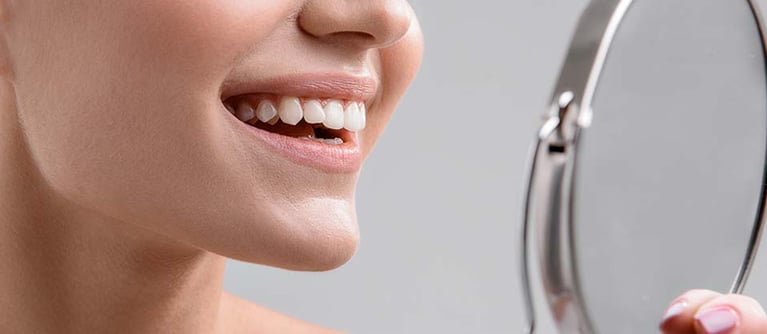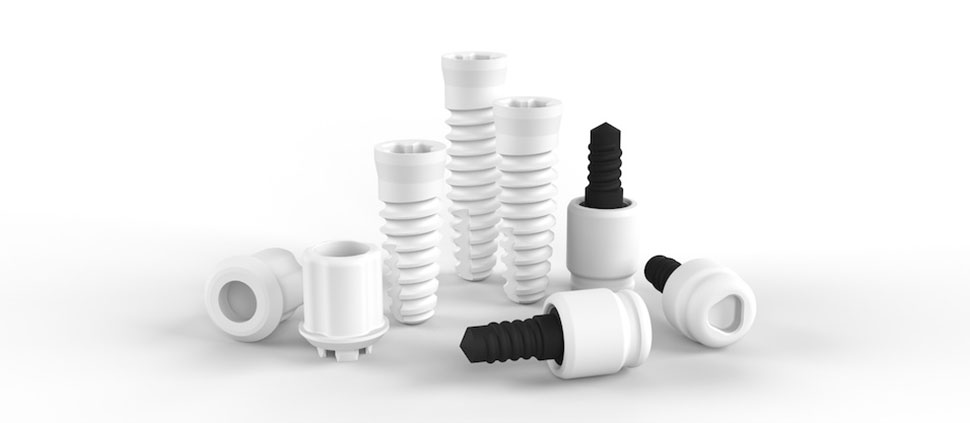There are multiple benefits of having ceramic dental implants over metal dental implants. Compared to their titanium counterparts, metal-free dental implants have or are able to:
There are two types of dental implants: titanium and zirconia. Metal dental implant fixtures are made of titanium, whilst metal-free dental implant fixtures are made of ceramic.
Although titanium metal implants have been used largly, the novel zirconia dental implants is a unique implant material that is starting to gain prevalent usage because of its aesthetic appeal.
After the surgical phase of treatment, the prosthetic phase begins: a replacement tooth in the form of a crown, bridge or denture, is placed over the implant.


















